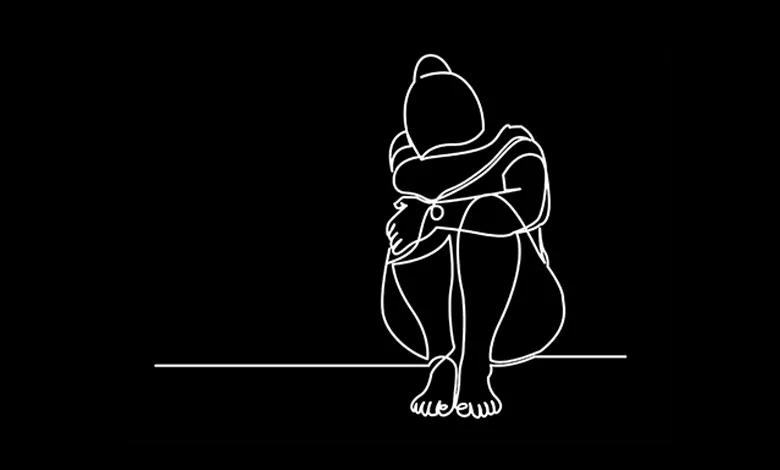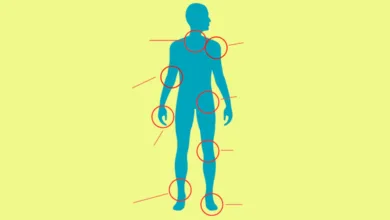How Grief Can Affect You

Grief isn’t something that can be rushed or bypassed. It’s a process that must be felt and worked through, no matter how uncomfortable. It’s about permitting yourself to feel everything as it comes, no matter how messy it might seem.
Grief has its own timeline and doesn’t fit neatly into expectations or schedules. It’s not linear. Some days, it’s manageable, while others, it crashes over you. Trying to rush through it often makes the experience more overwhelming. The only way out of it is through it. It’s about acknowledging, naming, and sitting with the pain. Then, give yourself the time and space to heal.
Many people feel that if they “push through,” the pain will fade faster. It’s a common misconception. Grief doesn’t work like that. It’s not something that can be outrun. The more you try to suppress it, the more it can resurface with even more intensity. Grieving is about allowing yourself to experience the pain because avoiding it can lead to emotional exhaustion or even numbness over time.
Grief surfaces when we least expect it, often in ways that feel out of place or confusing at first. Since it’s not always something we can control or fully understand, it can show up in emotional, physical, or even behavioral ways that catch us off guard. This is especially true when you are in the early stages.
Here are some common ways grief impacts you mentally and physically
Emotional outbursts or mood swings
Grief can make you feel like you’re on an emotional rollercoaster. One moment, you might feel fine. The next, you’ll be overwhelmed by sadness, anger, or guilt. Sometimes, the slightest trigger—a song, a photo, a place—can unexpectedly bring you to tears or anger. Often, people don’t recognize grief is expressing itself through these emotions. These triggers can hit you hard, even if you weren’t consciously thinking about the person or the loss at that moment.
Physical symptoms
Grief can profoundly affect your body. Fatigue, headaches, and muscle tension are common physical symptoms. You may also struggle with sleep—too much or not enough. Even if your mind hasn’t fully processed the loss, your body absorbs the emotional strain.
Disconnection or numbness
Sometimes, grief doesn’t feel like overwhelming sadness but instead like a fog. You might find yourself withdrawing from friends or family, losing interest in things you used to enjoy, or feeling disconnected from the world around you. This emotional “numbness” can be a defense mechanism but can also be unsettling, as if you’re watching your life from the outside.
Unexplained irritability or frustration
Grief doesn’t always look like sadness—it can sometimes manifest as irritability or anger. This happened to me in year two of my grief. You might find yourself snapping, feeling frustrated over small things, or having difficulty controlling your reactions to situations that wouldn’t usually bother you.
Overwhelm with everyday tasks
Even the simplest tasks can feel monumental when you’re in the throes of grief. Getting out of bed, working, or responding to messages can be exhausting. There’s a sense of being emotionally drained, as if every ounce of energy is directed towards holding your grief, leaving little for anything else.
Flashbacks or intrusive memories
Grief can evoke memories that you might not be ready to confront. The emotional intensity of this situation can feel like a punch to the gut every time.
Guilt or self-blame
Grief often triggers guilt, even if there’s no logical reason for it. You might question whether you did enough for the person or should’ve acted differently.
Yearning or searching for your lost loved one
These feelings are a deep, quiet form of grief that can sneak up on you. You may find yourself reaching for your phone to call the person who died or searching for their face in a crowd. This emotion can feel strange and disorienting, as if you are holding on to something no longer there.
Increased anxiety or fear
Grief can make us feel like the world is less stable. You might become anxious, overthink, and be paralyzed by fears about the future or the loss of other people you love.
Navigating the healing journey: Patience, self-kindness, and coping with grief
Grief’s unpredictability is part of its challenge. It can show up when you least expect it, often revealing layers of emotion you haven’t yet been able to process. In these unexpected ways, it can make you feel like you’re losing control—but it’s just part of the healing journey.
How can you cope? I encourage you to find the strength to confront these situations positively. For instance, you can transform those small triggers into fond memories that bring smiles instead of tears.
Grief can affect you in a multitude of ways; it requires patience, gentleness, permission, and the freedom to feel it all.
Try not to fool yourself into thinking you can do it any other way.






